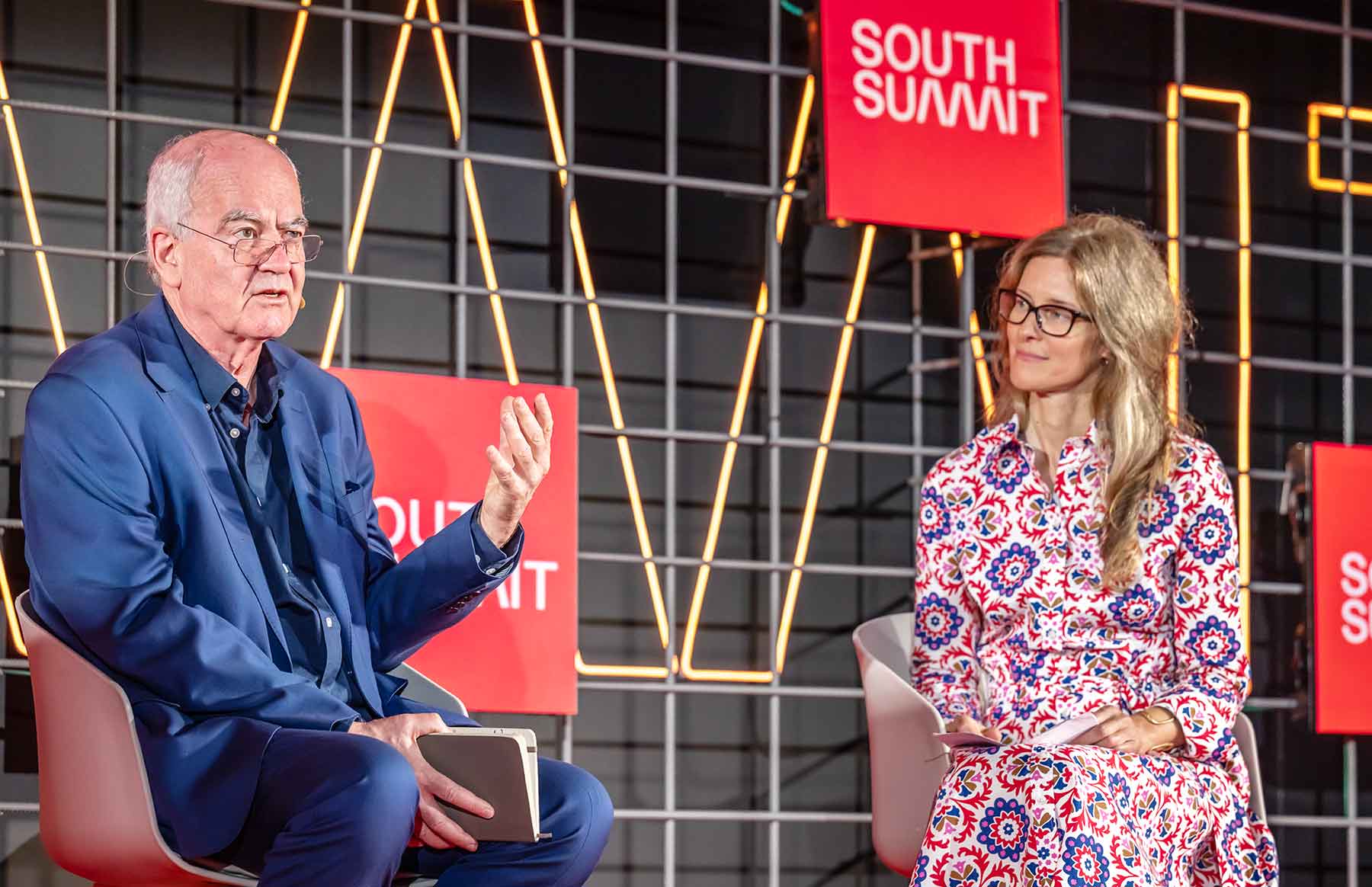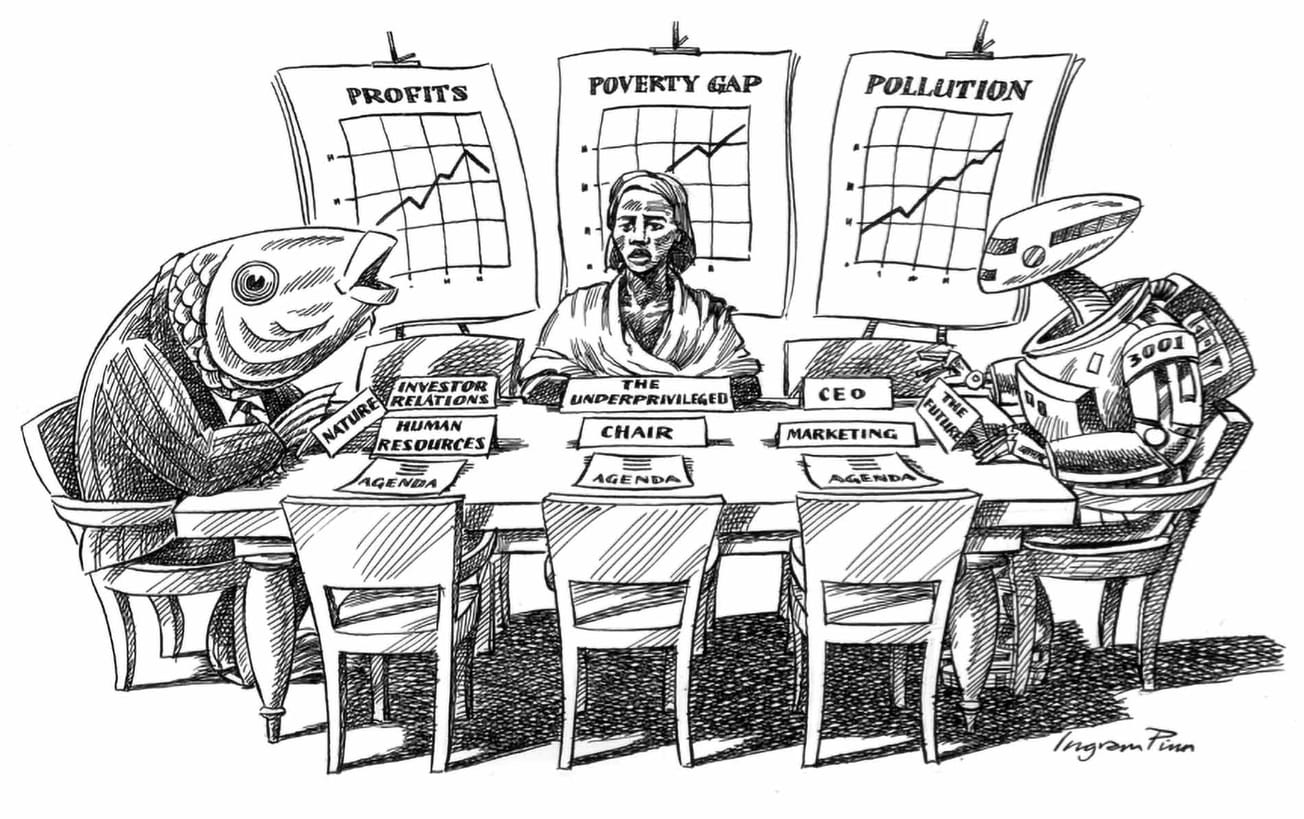Tell us about the fish in the business suit! And so began my conversation with John Elkington at South Summit Madrid in June.
The reference goes back to the early 1990s, when John commissioned Ingram Pinn, a Cartoonist with the Financial Times, to depict his directional thinking on the triple-bottom line visually. Over 30 years later, it’s equally fitting as businesses evolve from climate neutrality to nature positivity.
Here are a few key points we discussed during our fireside chat in Madrid.
The Nature-Tech Revolution: Nature-based solutions, like personal computing in the 1970s, are on the cusp of a boom. The opportunity now is for businesses to partner with nature to address critical challenges, moving beyond mere conservation to active collaboration.
Technology's Double-Edged Sword: Technology and innovation understandably drive human excitement, but it’s imperative we balance the gains of emerging technologies (i.e., bioacoustics, e-DNA, remote sensing, satellite imagery) with potential misuse and not allow ourselves to think that technology alone can remedy our broken relationship with the natural world. It's one of many essential tools in the toolbox!
Regulation and Innovation Balance: Regulations pushing for corporate disclosures on nature impacts are evolving quickly, especially in the EU. This is needed, and many of us in the sustainability profession have advocated for such regulatory clarity. But it’s imperative to balance carrot and stick and, in conjunction, enact enabling policies while remaining open to outcome-based approaches. The perfect should not be the enemy of the good.
Biomimicry at the Core: Learning from nature, which means biomimicry, is imperative to a nature-positive transition. As such, Chief Sustainability Officers (CSOs) must expand their command of the natural world and incorporate ‘Head of Nature’ considerations. Again, a true partnership with nature must go beyond imitation and modeling.
The Need for Biological Expertise in Business: As biology and ecology become increasingly crucial for business operations, we must be aware of the lack of such expertise in most corporate leadership. It’s time to seek out and integrate this knowledge, whether through board appointments, in-house positions, or advisory roles.
Any dialogue with John is a fine combination of originality, engagement, and insight. See his journal reflections here on the South Summit & Biodiversity Session.


My main takeaway is that the business world is on the brink of a paradigm shift in its relationship with nature. As we move towards a nature-positive future, businesses that can adapt, innovate, and truly partner with nature are more likely to find themselves at the forefront of their industries and sustainable development more broadly.












